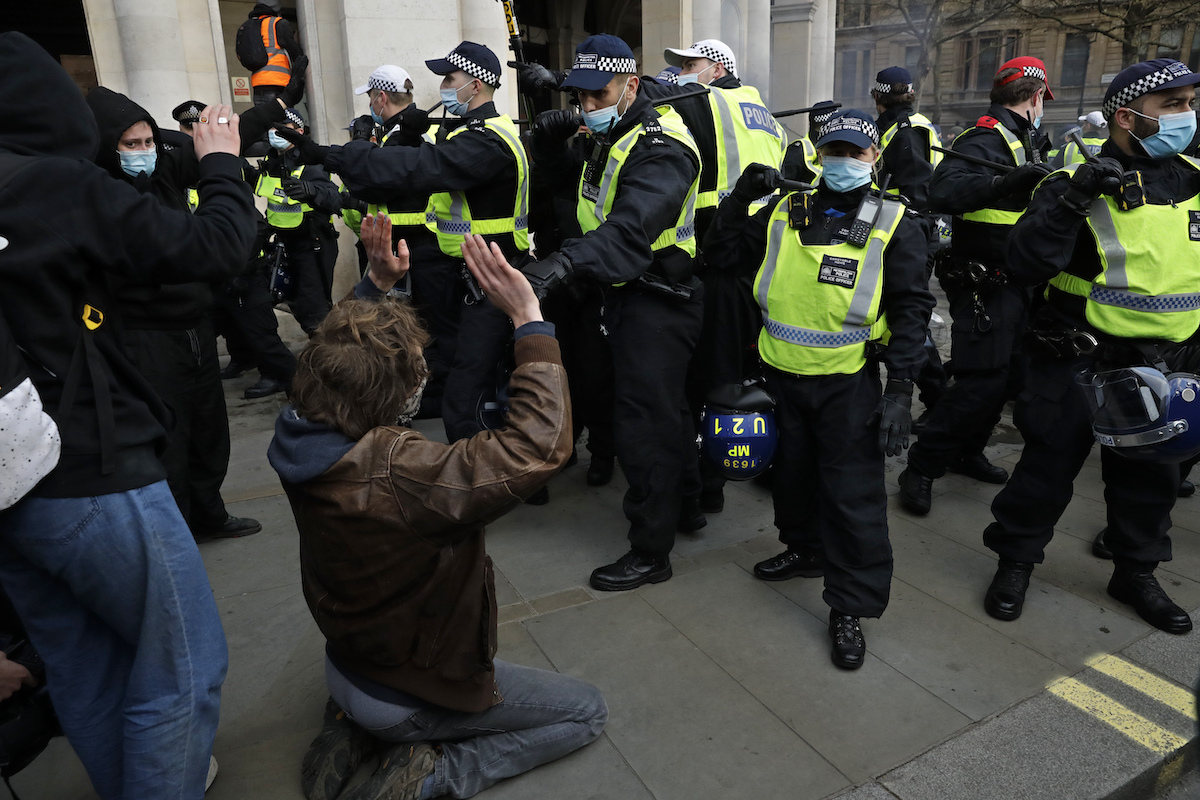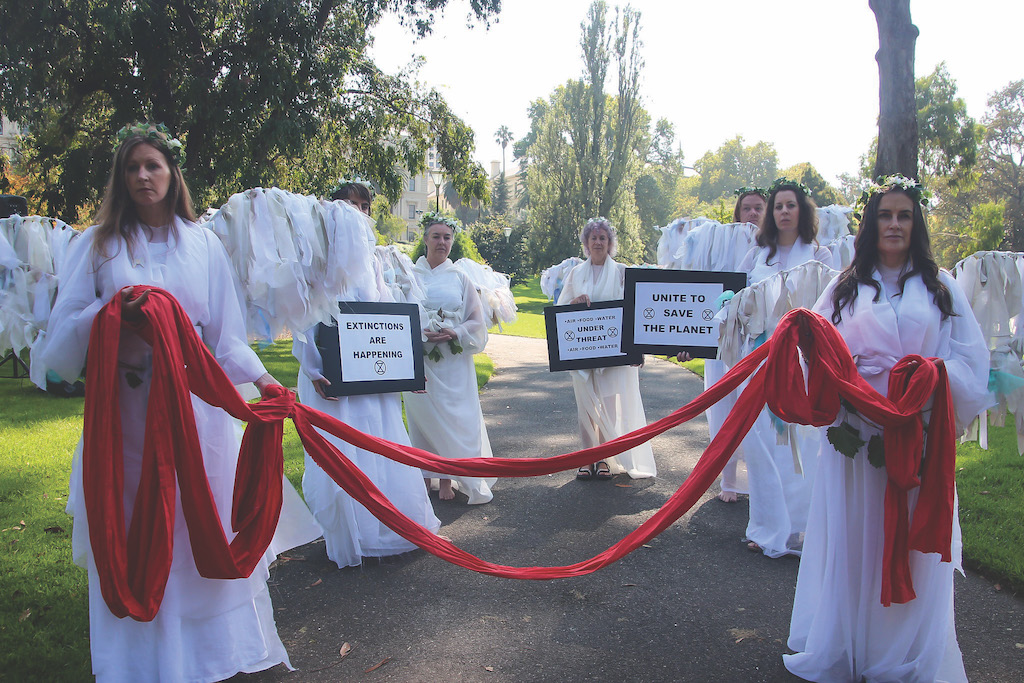Protests have broken out across the United Kingdom over the past several weeks. According to Reuters, demonstrators are voicing their opposition to a proposed bill by U.K. Prime Minister Boris Johnson, which critics say would increase police powers to stifle political dissent.
The landmark legislation is called the Police, Crime, Sentencing, and Courts Bill. The bill would offer police new discretionary power to crack down on protests on the basis of noise violations and other disruptions, including “public nuisance.” The bill includes other provisions, such as increased fines for participating in protests deemed unlawful by authorities.
Thousands of demonstrators turned out to oppose the bill in London and Bristol, as well as in smaller cities and towns in England and Wales. Demonstrations have come to be known as “kill the bill” rallies.
The protests have been met with heavy-handed policing and mass arrests. On April 3, London Metropolitan police arrested 107 people during demonstrations, ABC reported.
Opposition to the bill has drawn support from leading U.K. progressives, including former Labour Party leader Jeremy Corbyn. Corbyn urged protesters to “stand up for the right to protest,” BBC reported.
Proponents of the bill say it would give police greater power to ensure public safety and order. Yet critics see it as a threat to civil liberties and part of Britain’s ongoing “culture wars.” Others see the bill as a reaction against widespread Black Lives Matter Protests across the U.K. last summer, and more recent protests by climate change activists Extinction Rebellion.
The bill proposes stiffer protections for monuments, several of which were targets of last summer’s Black Lives Matter protests. In June, protesters at Oxford demanded the removal of a statue of British imperialist Cecil Rhodes, while demonstrators in Bristol toppled a monument to slave owner Edward Colston.
At a recent “kill the bill” protest in London, the Metropolitan Police drew the ire of protesters when it defended a statue of Winston Churchill. The defence of monuments represents a failure on the part of police and politicians to tackle more pressing public safety concerns, critics say. One Londoner took to Twitter, writing, “We don’t need to protect Churchill, he’s been dead since 1965. People who do need protecting? Women just going about their everyday business.”
The proposed bill, and the opposition protests, come in the context of intense public outcry about gender-based violence in the U.K., in addition to concerns about policing.
On March 13, London Metropolitan Police violently dispersed a peaceful vigil for 33-year-old Sarah Everard. Everard was abducted and murdered in South London early last month. Her killing has raised widespread concern about violence against women. The man accused of killing Everard is a London police officer.
The public gathering in Everard’s memory was also an “acknowledgement of the shared, omnipresent experience of intimidation, violence and harassment that women constantly face in public spaces,” organizers of the vigil told CNN.
Shortly after the socially-distanced vigil began, London Metropolitan Police attempted to disperse the crowd. Police cited COVID-19 regulations which they said prohibit large public gatherings. Police corralled mourners, making social distancing impossible, CNN reported.
Police forcibly detained mourners at the vigil, igniting a “public relations nightmare,” according to a recent report by a government oversight committee. The following day, viral images began to circulate picturing male London Police officers dragging mourners and pinning female vigil attendees on the ground.
Governmental review of the incident, produced by Her Majesty’s Inspectorate of Constabulary and Fire & Rescue Services, found that Metropolitan Police responding to the vigil incorrectly interpreted the legal restrictions on public gatherings under the U.K.’s tier 4 COVID-19 lockdown. A socially-distanced public gathering is legal under current restrictions, the review found.
Still, the same report said that police responding to the vigil acted “appropriately.” The report has drawn widespread condemnation in the U.K., due to what critics perceive as its general vindication of police conduct.
Critics of Johnson’s proposed bill argue that halting the crisis of gender-based violence should be prioritized, rather than expanding police power to crack down on protests. “They’ve written a bill that tells women more about how they may not protest violence against women than how we are protected from that violence,” said Jess Phillips, an MP for the British Labour Party, to CNN.
Supporters of Johnson’s bill point out in the wake of Everard’s death, Johnson did propose separate policing measures which he said would make women in the U.K. safer. These measures include upping CCTV police surveillance and increasing the presence of undercover police in bars and nightclubs.
These proposals have drawn their own set of criticisms, however. Undercover policing in Britain has come under fire in the wake of the 2020 “spy cops scandal,” which revealed mass undercover surveillance of political groups, as well as widespread extra-marital sexual relations by undercover officers using assumed identities. In this light, critics see Johnson’s proposals as a push to expand disreputable policing structures which have historically done little to protect women.
The recent protests raise sweeping questions about policing, public safety and gender-based violence in the U.K.. As Johnson continues to push forward with his legislation, profound questions concerning British society and institutions hang in the balance.






